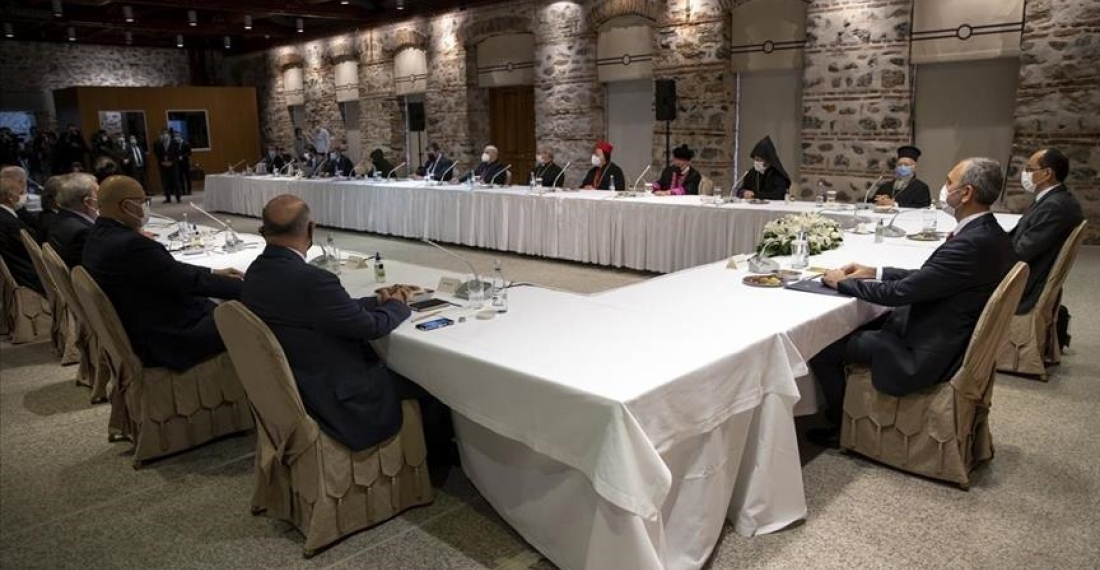The Turkish government on Sunday (29 November) held a dialogue with leaders of Turkey's religious minorities.
Among those attending were the Greek Orthodox Patriarch of Constantinople, Bartholomew; Archbishop Sahak Mashalian, the 85th Armenian Patriarch of Turkey; Yusuf Cetin, the metropolitan bishop of the Istanbul-Syriac Church; and Ishak Haleva, Chief Rabbi of the Jewish community in Turkey.
The meeting held at the Dolmabahce presidential working office was hosted by Turkish Justice Minister Abdulhamid Gul and Presidential Spokesman Ibrahim Kalin. According to a report by the semi official Anadolu news agency the meeting lasted three hours.
Justice Minister Gul said later that issues related to property rights, the right to education, and the right to organize were discussed at the productive meeting. Presidential spokesperson Kalin described the meeting as very productive meeting. He said members of the minority communities, who could not find any addressees in the state before, are now accepted and addressed at the highest authorities of the state.
“As you know, with the Endowments Law enacted in 2008, a historical, revolutionary change took place and the properties and immovables which belonged to foundations were returned to them.” He added that some specific issues related to churches, schools, and properties that are on the agenda of the minority representatives were also discussed at the meeting. He added,
“It is extremely important that we fight against hate crimes and discrimination with a single voice, especially at a time when both anti-Islamism, anti-Semitism and anti-Christianity are on the rise all over the world. We have stated here once again that there is no legal or humanitarian basis to condemn, accuse or make anyone an object of hate, regardless of their religious identity, because of their religion, ethnic identity or belief.”
The Turkish government earlier this year came under considerable internal and international criticism when it decided to turn the Hagia Sophia complex, originally built as a Christian Church and which had been a museum for decades, into a mosque.
source: commonspace.eu with Anadolu news agency (Ankara)
photo: Senior Turkish officials met leaders of the country's religious minorities in Istanbul on 29 November 2020 (picture courtesy of Anadolu Agency, Anakra)






